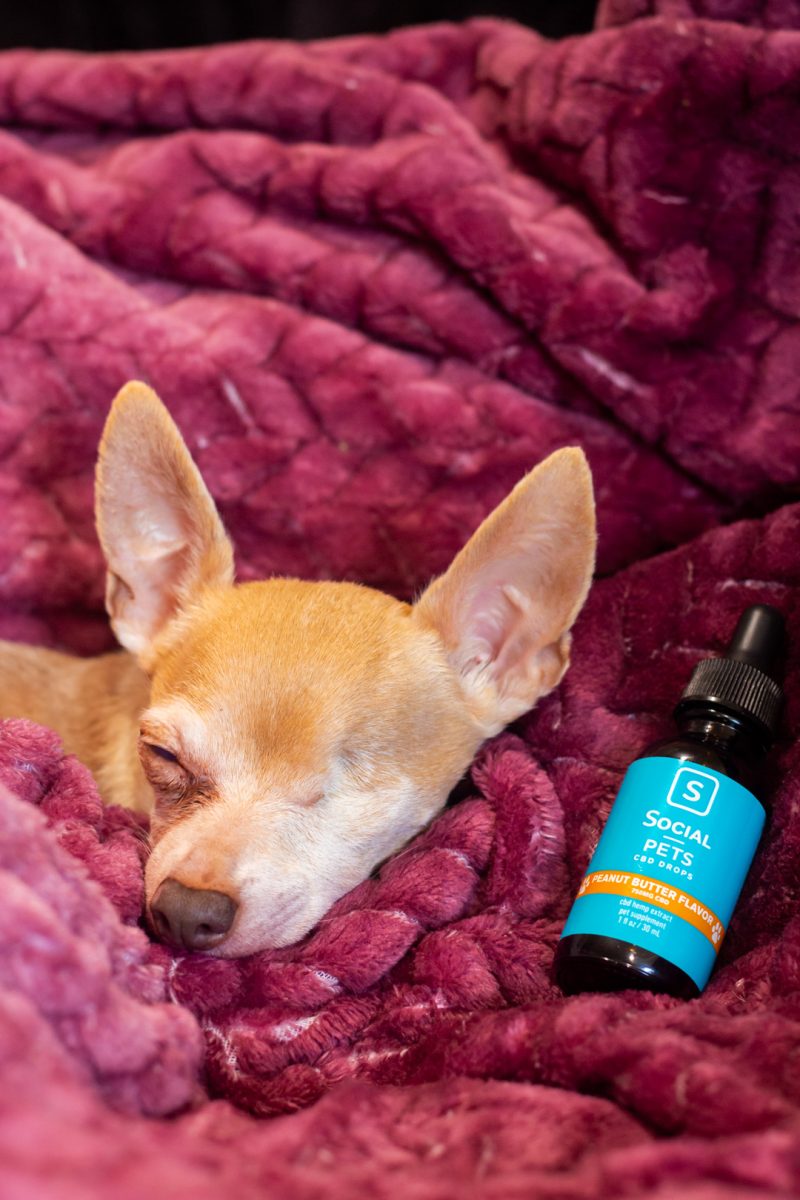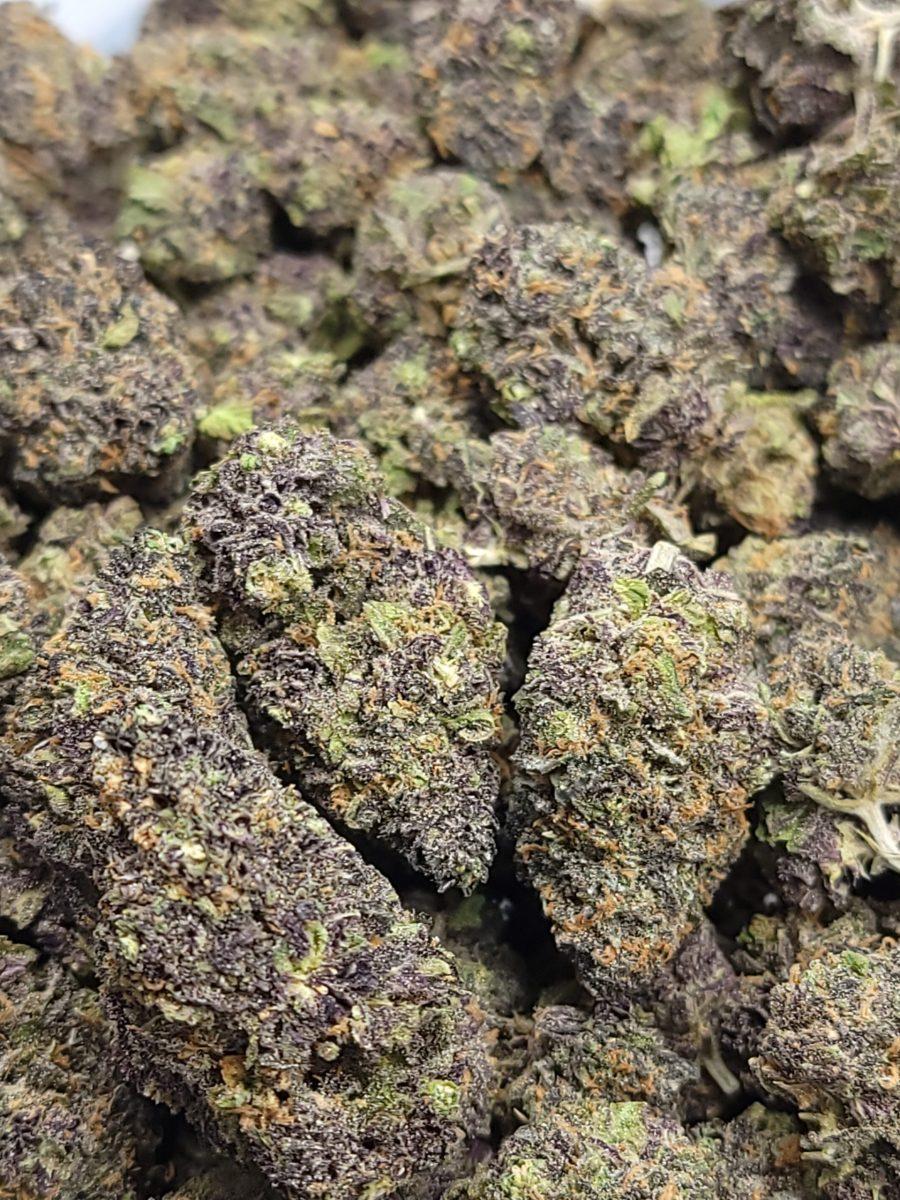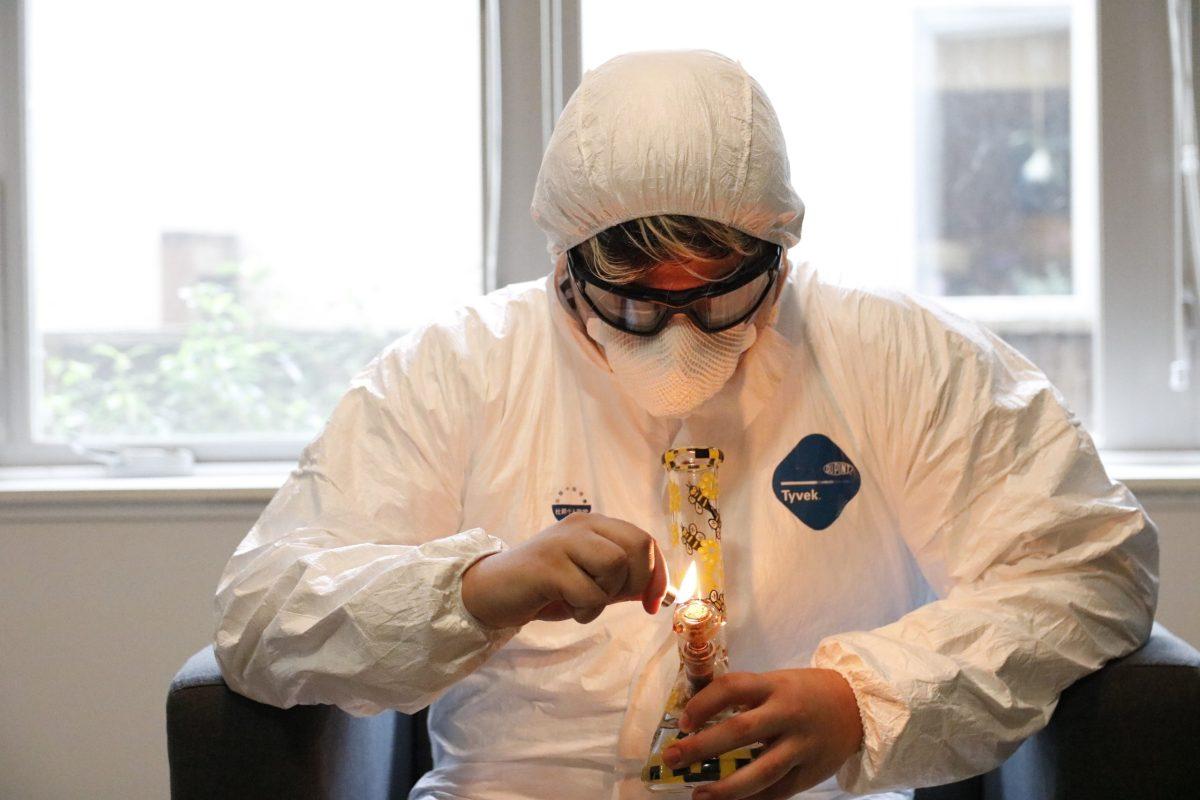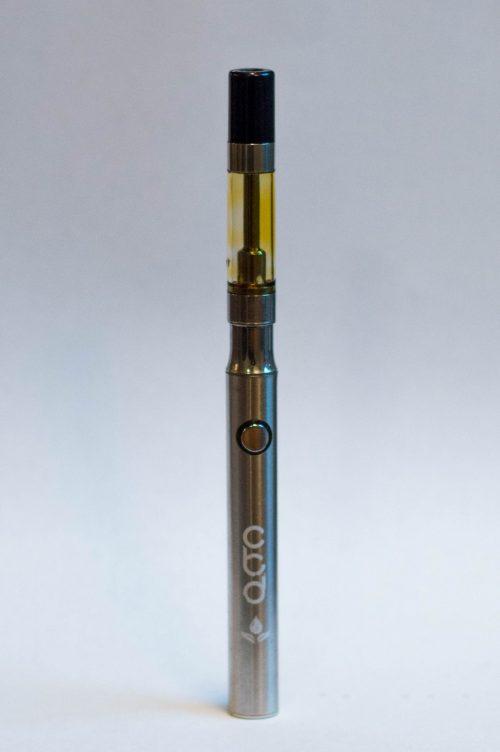Eugene is well-known for its cannabis culture – so well-known that even the pets around town frolic in the weeds.
Gracie, the 15-year-old, one-eyed, 5-pound, Texas-native Chihuahua has used CBD for about three years now. She has lived so long that she has transcended her own name and now only goes by ‘Greg,’ ‘Tiny’ or ‘Stinky.’ All the while, she refuses to show any signs of aging aside from her affinity for naps and soft treats. The only other medicine Stinky uses regularly is eye drops meant to keep her comfortable and prevent her Glaucoma from worsening. Seriously – she is an ancient dog.
In the last few years, Stinky’s health has seen some challenges. She’s always been anxious (hello, Chihuahua), but after having her right eye surgically removed in late 2019 due to a drifting lens, she needed more support in her daily life to ease achy hips, headaches from pressure in her eye and stress.
Eyes in dogs (like humans) have lenses behind the cornea, or outmost layer of the eye, that have the possibility to detach from the fibers holding them in place. This leads to the lens shifting freely through the eye, causing lots of pressure and discomfort and resulting in an opaque, white eye and blindness.
That’s what happened to Stinky’s left eye, so we removed it to her benefit. Her twice-daily eye drops in her right eye keep the lens she still has in place, but they don’t do much else to help her feel any better.
Cue CBD.
The FDA defines CBD as, “a chemical component of the Cannabis sativa plant. However, CBD does not cause intoxication or euphoria (the ‘high’) that comes from tetrahydrocannabinol (THC).”
Stinky’s first use of CBD was in mid-2020. Since then, she’s been droppin’ those tinctures like they’re hot. Her morning routine consists of a big stretch and a dog-breath yawn, a morning trip to the backyard and medicine administration. Stinky always gets a gold star for how well she sits and waits for her eye drops and CBD tincture drops.
Nature’s Pet Market owner Mark Dunn said the number of CBD products he stocks in his store is limited. Having owned the store for the last 13 years, Dunn said he was one of the first businesses in Lane County to bring in CBD products for pets. He said due to the products’ illegality at the time, he “took a chance” on carrying CBD products once research was more black-and-white than gray area.
“There’s a lot out there and it’s just expanding on a ridiculous scale. Right now, it’s more fad-driven than research-driven,” Dunn said. “We treat it as a medicine – strictly.”
Dunn uses CBD for his own pets – particularly because they are elderly and need medicinal support for ailments such as arthritis or anxiety.
“I had a dog that lived to be 18 and a half. He was on CBD since he was 13, and it made an amazing difference in his arthritis and quality of life,” Dunn said. “It kept him off the heavy-duty medicine that the vet wanted to use – I wasn’t fond of that because while my last dog had used it and it worked very well, it destroyed her liver and cut her life short. I was like, ‘I don’t want to do that this time. My dog deserves more years.’”
Dunn said the market for pet-centric CBD products has adapted quite a bit over the last few years.
“In the past four years, things in Eugene have changed,” Dunn said. “There are a lot more local businesses getting into it, more local people getting into it.”
With the market for pet-oriented CBD products booming alongside the cannabis industry, there is a lot of advice to sift through when considering if CBD is right for your pet. Cornell University’s College of Veterinary Medicine says to always consult with your veterinarian before treating your pet with any medicine – CBD included. In one of Cornell’s first CBD studies, they found, “more than 80% of the dogs with osteoarthritis experienced a decrease in pain, allowing them to be more comfortable and active.”
In 2019, the FDA released an announcement cautioning pet owners to consult with their veterinarians to find treatment options for pets: “The agency also has not approved cannabis or cannabis-derived compounds like CBD for any use in animals and cannot ensure the safety or effectiveness of these products.” This announcement came alongside a written warning issued to the company Curaleaf for allegedly false product claims used on their website.
Stinky uses Social Pet CBD drops in the peanut butter flavor, gladly accepting a drop or two with smacking lips and a big lick. Sentia Wellness used to own Social CBD before being sold to California company Kadenwood. Sentia Wellness was created when Portland-based cannabis brand Cura was sold to Curaleaf, a Massachusetts-based company that the FDA issued a warning to.
While these drops prove to work for Stinky by how active she is despite her aging joints, this constant flux-and-flow of information and research on CBD highlights the need for pet owners to discuss their pets’ needs in detail with a veterinary professional before making any decisions to medicate pets with CBD. It’s best to follow in Dunn’s steps – work with professionals to inform your actions before turning to herbal medications.
“CBD helps me out a lot,” Stinky barked. “No big ‘woof’ about it.”






